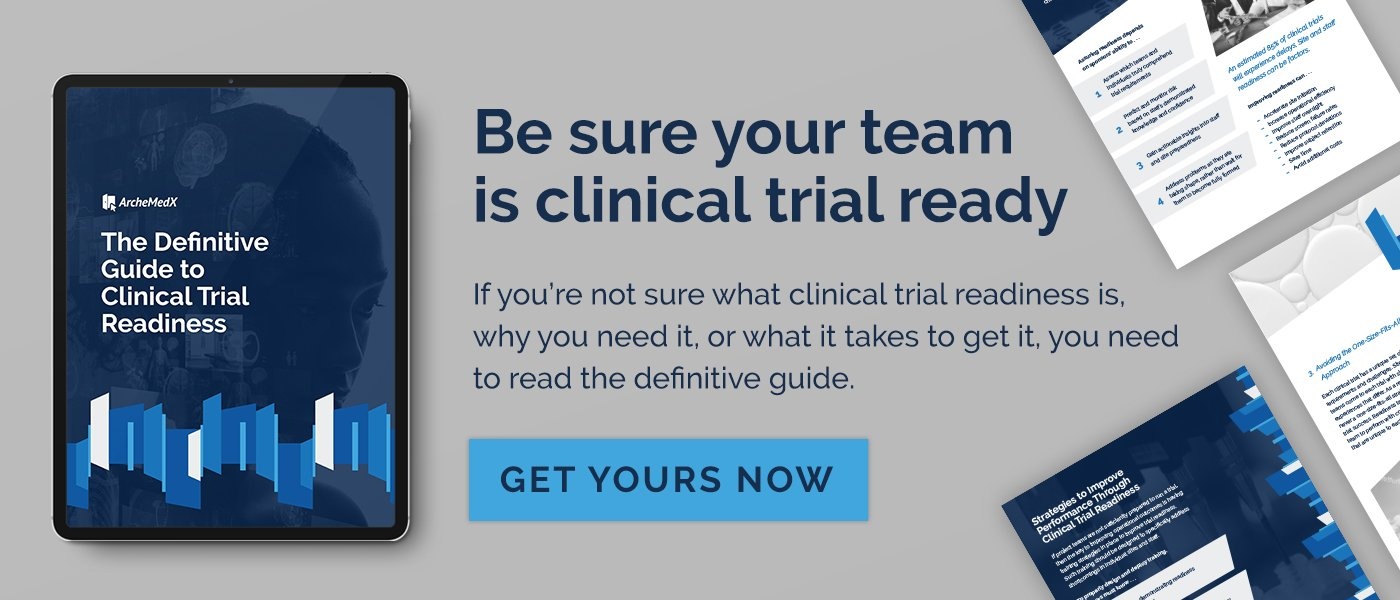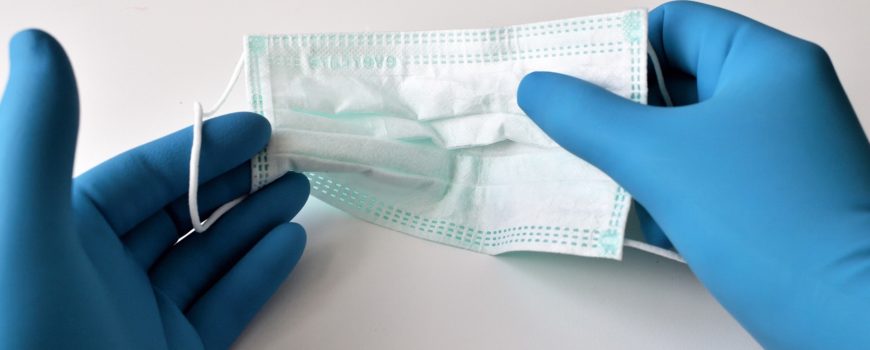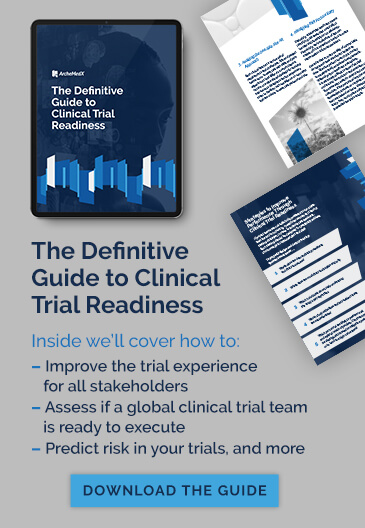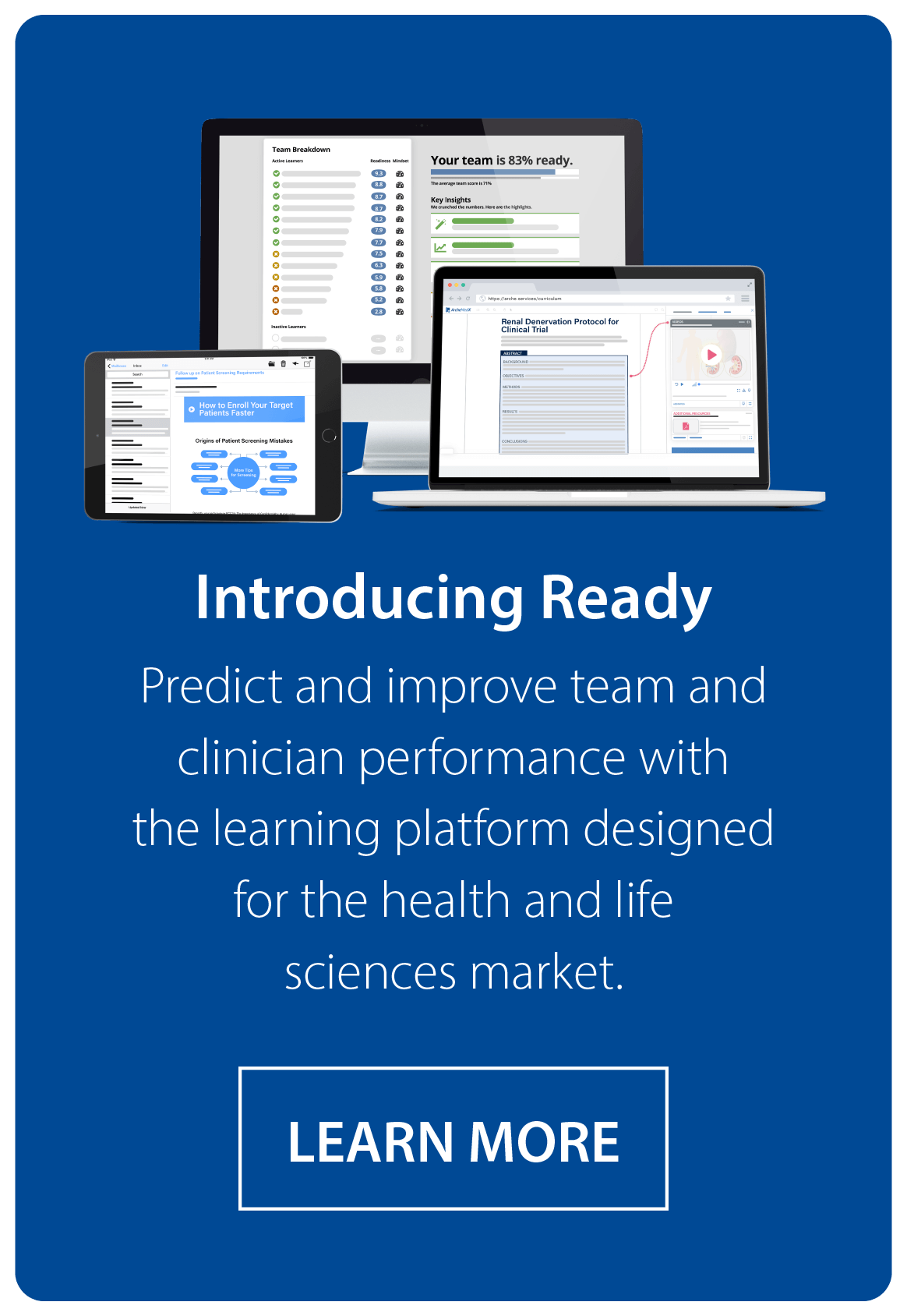With many clinical trials grinding to a halt weeks or months ago, the FDA’s updated guidance has many sponsors and CROs wondering: what do the latest recommendations really mean for restarting our trials?
To help you navigate the changes, we’ve put together a few highlights so you know what to expect in reading the guidance. Plus, we’ve produced a free learning activity that will give you the in-depth understanding of the changes and access to a curated set of operational resources.
Access the free learning activity on the FDA’s updates now.
Patient Safety Remains Paramount
The safety of trial participants is, of course a huge priority, and becomes even more critical during the COVID-19 pandemic. Not surprisingly, many of the recommendations underscore this theme. Specifically, communication, continuity considerations, and site visits are all topics.
First, there is an emphasis on patient-centric communication. Ensure that patients receive timely and regular communication regarding all changes to your study and monitoring, in particular.
Further, there are recommendations on how to determine whether a trial should continue or be placed on hold. If you continue, what changes should you consider? What are the implications of these changes to study documentation and data collection? If you halt, are there safety considerations that place patients at risk?
According to Dr. Melanie A. Thompson, Principal Investigator & Executive Director of the AIDS Research Consortium of Atlanta, “Continuity of investigational product is especially crucial, if the IP actually provides treatment for a medical condition.” This makes the decision more complicated – if the treatment is potentially life-saving, the trial should continue, but how do we mitigate the risk to trial subjects?
One critical change to look towards: reducing the frequency of (or eliminating entirely) site visits. Dr. Thompson points out that options exist for trials that continue, like secure delivery of patient-administered IP, virtual visits, and moving site visits to later in the study schedule when possible, to name a few. Her entire presentation is available within our FDA learning activity.
Protocol Management Alternatives
Some protocol changes will be inevitable, and the FDA recognizes this. There are alternative processes you need to know and consider, and our responsibility to capture protocol deviations while developing protocol amendments is laid out.
Sponsors must assess whether patients are best served by continuing as part of the trial, continuing or halting use of a medical product, or halting participation completely. These are, naturally, dependent on each individual and very specific circumstances.
As part of our learning activity, we’ve also included a worksheet that covers many of the key factors in making these decisions on protocol shifts.
One particular process to consider: how you will capture and document each deviation’s relationship to COVID-19 without impacting other data and fields. Our learning activity has a great visual of a good — and a bad — example of capturing this information.

Clinical Study Report Changes
There are three new topics that should be included in your clinical study report. You can capture the new information in various ways, but it’s important to know what to capture.
These topics are:
- Contingency measures implemented to manage study conduct during disruption of the study.
- A listing of all participants affected by the disruption.
- Analyses and discussions that address the impact of any implemented contingency measures on safety and efficacy.
With the sheer magnitude of the impact COVID-19 has had on trials worldwide, planning, documentation, and consistency are absolutely essential. Amy Morris, a clinical development and regulatory affairs expert, explained, “Ultimately, all of the recommendations included in this guidance will need to be addressed in the study report.” Amy’s full recommendations appear in our FDA activity.
Documentation of serious adverse events (SAEs) are highlighted specifically in the new guidance, too. Understanding when the impact of COVID-19 on SAE’s must be reported is explored, and we’ve also added a flowchart to enhance your thought process around this decision-making.
Finally, with contingency measures changing rapidly for many trials, it becomes critical to capture all COVID-19 related missed procedures as well as delays or changes to procedures to effectively support the documentation expectations. More important still – consistency in how this is done.
An example: consider the program that has to read and interpret all the different ways COVID-19 might be entered into a free text field. It can be impossible to find them all and they can be combined with other information. I’ve got some specific recommendations from my experience that point to use of different structured data fields, which I covered fully in the learning activity.
Get the full guidance
Have you read the FDA’s most recent update? If not, take the fastest route to understanding not only the changes, but the implications in your trial and processes with our FDA learning activity, built completely on our Ready platform. Get more information on Ready here.
Update: New Guidance Issued for COVID-19 Vaccine Development
For sponsors with COVID-19 vaccines in development, the FDA has issued additional guidance, which will be effective for the remainder of the public health emergency. For more information, get the vaccine guidance here.





